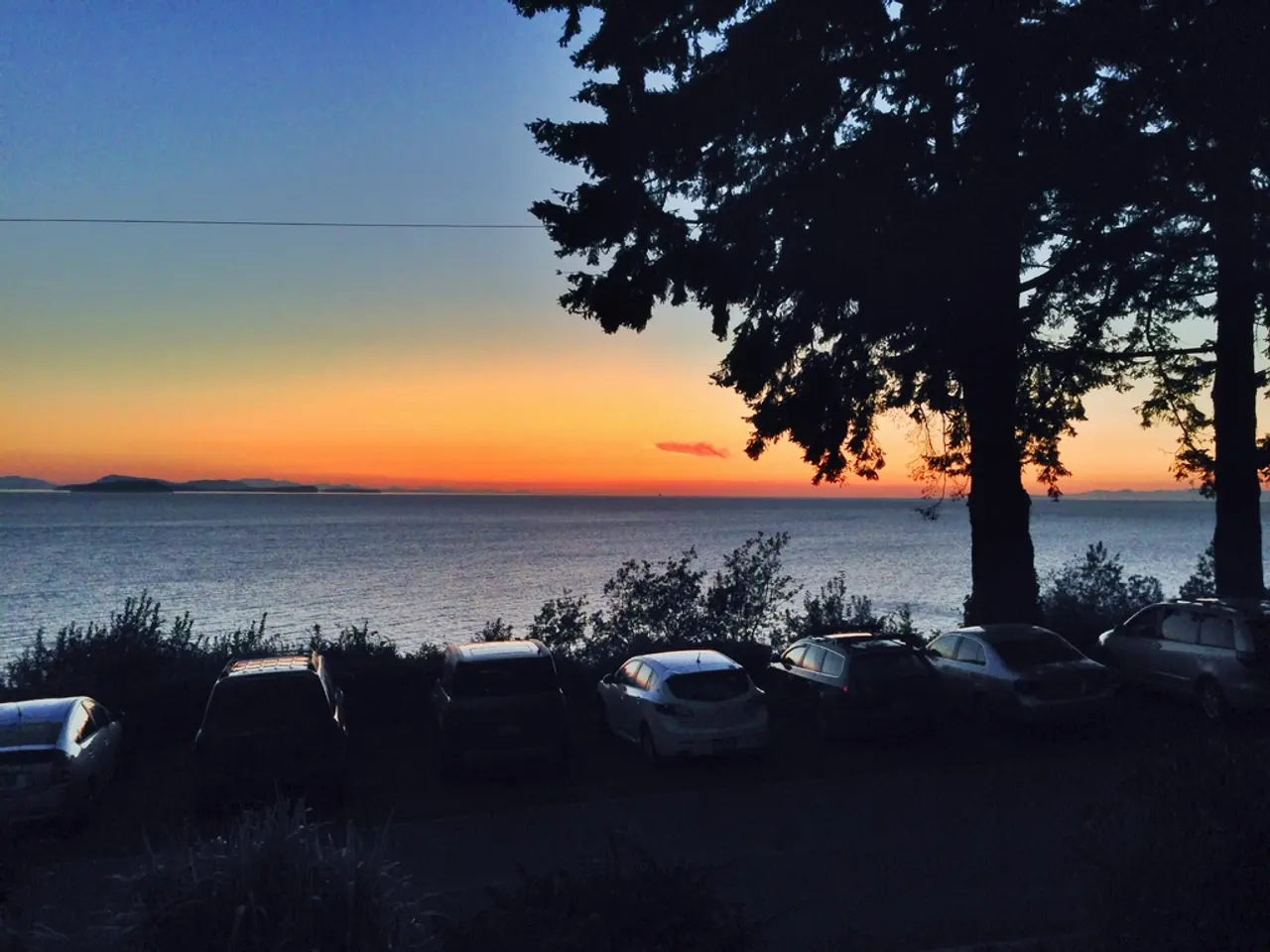Berlin endures heatwave; BUND advocates preventative actions
Urgent Call for Berlin Heat Action Plan Amidst Rising Temperatures
The environmental association BUND Berlin is urging the city of Berlin to implement an immediate heat action plan, as the German Weather Service (DWD) predicts a significant heat stress event on Wednesday. With reduced nighttime cooling, especially in the densely built-up city area, the risk of heat stress is particularly high.
This call for action comes in response to the increasing health and environmental risks posed by extreme heat events, which have become more frequent due to climate change. The BUND's primary concerns are the protection of vulnerable populations, the improvement of urban resilience, and the management of heat-related health impacts.
The BUND's six-point plan serves as a short- and medium-term heat action plan, focusing on acute crisis management and direct protection from heat damage. Key elements of this plan include:
- Immediate measures to protect vulnerable groups, such as the elderly, children, and those with pre-existing health conditions, during heat waves.
- Urban planning strategies to reduce heat islands, for instance through expanding green spaces, enhancing tree cover, and implementing cooling infrastructure in public areas.
- Strengthening public awareness and communication regarding heat risks and prevention measures.
- Integration with broader climate change adaptation policies at the city level to ensure systematic response and resource allocation.
These priorities align with Germany's national climate adaptation strategies that emphasize collaboration across government levels, risk assessment, and setting defined goals to manage climate impacts, including heat.
The BUND is also advocating for an increase in the previously allocated funds of 100,000 euros per district for immediate heat protection. They suggest "outreach social work that reaches vulnerable people in their homes and on the streets" for better support. Additionally, they call for more political will from the government, sufficient staff, and stable financing for the heat action plan.
In light of the predicted maximum temperature of 36 degrees, the BUND is also advocating for a significant expansion of "blue infrastructure" such as drinking fountains and misting systems. Green spaces, which are important for cooling the city and for absorbing rainwater, would also benefit from protection from construction.
However, the Senate currently does not have a heat action plan to protect the Berlin population from the effects of high temperatures. The BUND finds the current timeline for the heat action plan too slow and has set up its own proposal, which includes a call for a tax to promote the switch from single-use to reusable packaging and a comprehensive network of "cooling centers" like libraries, community centers, theaters, and exhibition halls.
The BUND's urgent call for an immediate heat action plan is an urgent plea for comprehensive, practical steps to cope with the tangible threats posed by rising temperatures, protecting public health and urban livability.
- Amidst rising temperatures and the increasing frequency of extreme heat events due to climate change, the environmental association BUND Berlin is advocating for the implementation of a comprehensive heat action plan, incorporating not only acute crisis management but also long-term strategies, such as urban planning and public awareness campaigns, to address health and environmental risks associated with heat stress.
- The BUND's plans for environmental-science-driven weather forecasting and climate change adaptation strategies align with Germany's national policies, which focus on collaboration, risk assessment, and setting defined goals to manage the impacts of a changing climate.
- In order to effectively combat the expected health impacts of the predicted 36-degree temperature, the BUND is urging the expansion of "blue infrastructure" like drinking fountains and misting systems, as well as the protection of green spaces in the city, to ensure the cooling and absorption of rainwater, promoting overall health-and-wellness and the livability of urban environments.




